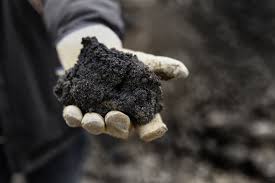
While WTI dropped to $20 a barrel in the U.S. oil prices in Canada are much worse—under $8 a barrel.
Bloomberg says the benchmark blend of crude produced from Canada’s oil sands plunged to a record low of $7.47 a barrel on Wednesday. Blame the oil price war between Saudi Arabia and Russia and the plunging demand as a result of the coronavirus.
What it means to Canada—the energy industry generates 10% of the country’s gross domestic product and a fifth of its export. The province of Alberta was already struggling with a pipeline shortage that restricted crude oil production growth.
Analysts now say this latest blow could cause a “domino effect” across governments.
“We are probably going to see another wave of layoffs,” said DinaraMillington, vice president of research at the Canadian Energy Research Institute. “We will see a reduction in terms of how much the producers are paying the government in terms of tax revenue and royalties.” At the same time, she said, the crisis could have ramifications beyond the purely economic, including “social unrest.”
The distance from Alberta’s oil sands to refineries on the U.S. Gulf Coast, with insufficient pipeline infrastructure along the way, forces Canadian producers to sell their crude at a discount to compete with an abundance of shale supplies.

Making matters worse, the Canadians can’t turn production on and off as nimbly as producers in Texas. Certain quirks of oil-sands production limit how much they can throttle back money-losing output without raising the risk of permanent damage to their resources. The situation means Canadian producers may be forced to bleed red ink for weeks or months, depending on how long the price war lasts, before capitulating and shutting in output.
“Most operators will choose to operate at a loss for a few months or a few weeks before making that decision,” according to Mark Oberstoetter, lead analyst for upstream research at Wood Mackenzie Ltd. in Calgary. Meanwhile, “everyone is losing at this price,” he said. “No one is in the black.”
While the Canadian crude benchmark dipped below $8 a barrel, West Texas Intermediate futures in New York fell as much as 26% to $20.06, the lowest since February 2002. Later in the day, Canadian crude rebounded slightly to $9.12, its lowest close ever.
Source: Bloomberg






